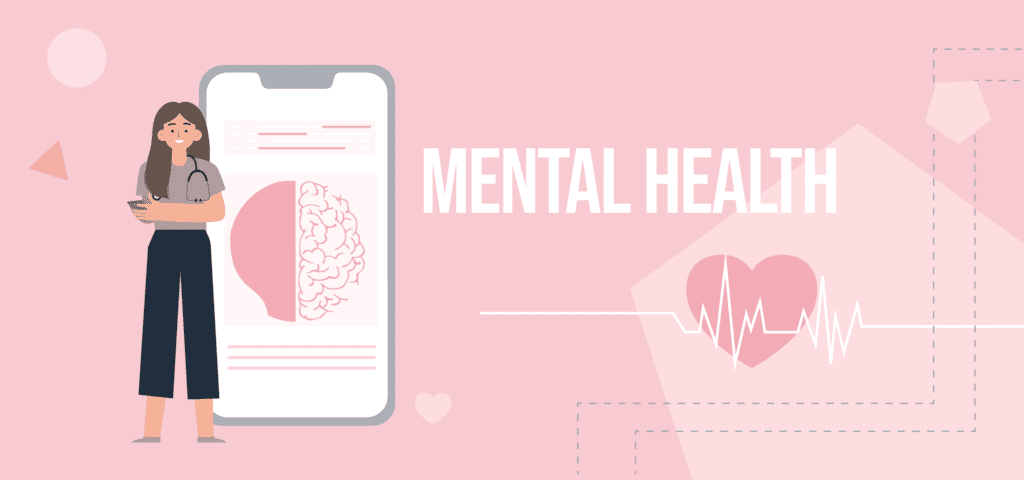
-
Pinterest
Mental health is just as important as physical health, yet it often gets overlooked. Life can be hectic, and in the midst of all our responsibilities, it’s easy to lose touch with how we’re really feeling. That’s where tracking your mental health comes in. By keeping tabs on your emotions, thoughts, and overall well-being, you can better understand yourself and take steps toward a healthier, happier life. Here are some tips for tracking your mental health in a way that feels supportive and empowering.
How Mental Health Tracking Can Empower Your Well-Being?
Tracking your mental health is a powerful way to stay connected with yourself and understand how your emotions, thoughts, and experiences shape your well-being. It’s not just about noticing when things are tough; it’s about recognizing the patterns that influence your mood, finding what helps you thrive, and taking proactive steps to nurture your mind. By keeping track of your mental health, you give yourself the gift of self-awareness, which is the first step toward making positive changes and ensuring that you’re caring for yourself in the way you deserve. It’s a small but meaningful act of self-love that can lead to greater peace, balance, and happiness in your life.
Tips for Mental Health Tracking
1. Start with a Daily Check-In
One of the simplest ways to track your mental health is by doing a daily check-in. This can be as quick as taking a few moments each morning or evening to ask yourself how you’re feeling. What emotions are you experiencing? Are you feeling stressed, anxious, happy, or calm? By tuning into your emotions regularly, you begin to notice patterns and become more aware of your mental state.
You can jot down your feelings in a journal, use a mood tracker app, or even just make a mental note. The key is consistency—checking in with yourself every day helps you stay connected to your emotional well-being.
2. Use a Mood Tracker
Mood tracking is a powerful tool for gaining insight into your mental health. By recording your mood over time, you can see trends and identify what influences your emotions. There are many ways to track your mood, from simple paper charts to apps that let you log your feelings and add notes about what might have triggered them.
When using a mood tracker, try to be specific. Instead of just marking your mood as “good” or “bad,” consider using a broader range of emotions, like “content,” “frustrated,” “anxious,” or “excited.” This gives you a more nuanced view of your emotional landscape and helps you understand your mental health on a deeper level. You can learn more and download my free Mental Health Trackers here.

-
Pinterest
3. Keep a Mental Health Journal
Journaling is a classic and effective way to track your mental health. Writing down your thoughts, feelings, and experiences allows you to process them in a safe, private space. A mental health journal doesn’t have to be elaborate—it can be as simple as jotting down a few sentences each day about what’s on your mind.
As you journal, try to focus on both the positive and negative aspects of your day. This balanced approach helps you see the full picture of your mental health. Over time, you’ll start to notice patterns, like what triggers your stress or what activities make you feel most at peace. Reflecting on these patterns can guide you in making choices that support your well-being.
4. Pay Attention to Physical Signs
Our mental health often manifests in physical ways, so it’s important to pay attention to your body. Notice if you’re experiencing changes in your sleep patterns, appetite, or energy levels. Are you feeling more fatigued than usual? Do you have tension headaches or stomach issues when you’re stressed?
Tracking these physical signs can give you valuable clues about your mental health. For example, if you notice that you’re always tired or irritable on certain days, it might be a sign that something in your routine or environment is affecting your well-being. By recognizing these patterns, you can take proactive steps to address the root cause.
5. Use Technology to Your Advantage
There are countless apps and online tools designed to help you track your mental health. These tools can make it easier to log your moods, set reminders for self-care, and even connect with mental health professionals. Some apps offer guided meditation, breathing exercises, and other techniques to help you manage stress and anxiety.
Using technology doesn’t have to be overwhelming. Start with one or two tools that resonate with you, and gradually build from there. The goal is to find resources that support your mental health journey without adding extra stress.

-
Pinterest
6. Set Personal Goals
Tracking your mental health can be more meaningful if you set personal goals related to your well-being. These goals don’t have to be big—they can be as simple as getting outside for a walk each day, practicing gratitude, or taking five minutes to breathe deeply.
Having goals gives you something to work towards and helps you measure your progress. It also encourages you to prioritize your mental health in your daily life. As you achieve these goals, you’ll build confidence and feel more empowered in managing your mental well-being.
7. Reflect on Your Progress
Every now and then, take a moment to reflect on your mental health journey. Look back at your journal entries, mood tracker, or any other records you’ve kept. What patterns do you see? Are there certain times of the month or specific situations that consistently affect your mood?
Reflecting on your progress helps you understand how far you’ve come and what areas might still need attention. It’s also a great opportunity to celebrate your successes, no matter how small. Acknowledging your growth is an important part of maintaining a positive mental health outlook.
8. Practice Self-Compassion
In tracking your mental health, it’s crucial to practice self-compassion. Remember that it’s okay to have bad days, and it’s okay to struggle. Tracking isn’t about judging yourself or striving for perfection—it’s about understanding yourself and caring for your well-being.
Be kind to yourself as you navigate your mental health journey. If you notice negative patterns or feelings, approach them with curiosity rather than criticism. Ask yourself what you need in that moment, and take small steps to provide it. Whether it’s rest, connection with others, or simply acknowledging your feelings, self-compassion is key to maintaining a healthy mindset.

-
Pinterest
9. Use Mental Health Trackers
Using different mental health trackers can also help enhance your well-being. Each tracker offers unique insights into your mood, stress levels, and overall mental health, allowing you to understand yourself better. By exploring various tools, you can find the ones that resonate most with you, helping you to stay more connected with your emotions and manage your mental health more effectively. It’s a simple yet powerful way to support your journey toward a healthier, happier you.
More Related Posts:
- Mental Health Trackers: A Step Toward Better Self-Awareness
- What Is Mental Health Masking and How to Recognize It
- 20 Strategies To Help You Let Go Of Resentment
Conclusion: Embrace the Journey
Tracking your mental health is an ongoing journey of self-discovery and growth. By staying in tune with your emotions, setting goals, and reflecting on your progress, you can build a stronger, healthier relationship with yourself. Remember, it’s okay to take things one step at a time. The most important thing is to be patient and compassionate with yourself as you navigate this path. Your mental health matters, and by tracking it, you’re taking an important step towards a happier, more balanced life.


